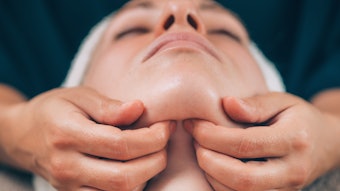
Celiac disease (CD) is an autoimmune disorder whereby the ingestion of gluten leads to damage in the small intestine. It can occur in genetically predisposed individuals, which are estimated at 1 in every 100 people worldwide. CD can easily be diagnosed by a blood test or intestinal biopsy,1 yet approximately 2.5 million Americans are undiagnosed and at risk for long-term health complications.
The immune systems of those affected by celiac who eat forms of the protein gluten, such as those found in wheat, barley and rye, attack the small intestine. Left untreated, celiac can lead to more serious autoimmune conditions, such as diabetes and multiple sclerosis, along with intestinal cancers, neurological issues and anemia. Furthermore, celiac disease can impact the body externally, appearing as a number of skin disorders that occur simultaneously with digestive issues.
Other Gluten Sensitivities
In addition to celiac disease, there are other gluten sensitivities; so asking questions on the intake form will be important for estheticians. CD, non-celiac gluten sensitivity (NCGS) or wheat allergies may sound the same, but they are different diagnoses and should be treated differently.
NCGS. NCGS, also known as gluten sensitivity (GS), is not thoroughly defined, but doctors know it is neither a wheat allergy nor a definitive autoimmune disease like celiac. At this time, there are limited tests for this issue, but it is estimated that GS may affect 2% to 6% of the population. What the medical community sees are reactions within 48 hours of consuming gluten. Once wheat allergy or celiac are ruled out, most individuals find relief with a gluten-free diet. Life-long adherence to a gluten-free diet is currently the only treatment for GS.2
Wheat allergy. This is diagnosed as an immune reaction to one or more of the hundreds of proteins commonly found in wheat. When a person has a wheat allergy, one type of white blood cells, called T-cells, sends out immunoglobulin E (IgE) antibodies to attack the wheat. The local tissues of the body then send out natural chemical alerts to let the body know there is a problem. A fairly quick typical allergic reaction follows, such as nausea, swelling of tongue/throat, rash, breathing difficulties, etc.
Note that it is also possible for a person to be allergic to wheat and have celiac or gluten sensitivity. Children with wheat allergies sometimes grow out of them, but adults tend to have them for life. A wheat-free diet is recommended.
Digestive-related Skin Conditions
Skin conditions that may arise from CD, NCGS, GS or a wheat allergy may include: dermatitis herpetiformism (DH), eczema, acne, dry skin, keratosis pilaris and alopecia.
Dermatitis herpetiformis. DH usually appears as a severe, itchy, blistering skin rash. While not all individuals with gluten intolerance develop DH, an estimated 15% to 25% of celiac sufferers develop the condition. It occurs most often in adult women and occasionally in children—but this is less likely, until they move toward adulthood.3
The rash, which is usually symmetrical in shape, is found on the knees, buttocks and elbows, typically on both sides on the body. Loss of pigmentation and/or darker pigmented areas sometimes appear on the skin as the rash eventually comes and goes. DH is usually treated with a gluten-free diet along with prescription lotions. This form of rash should always be treated by a medical professional since it can easily be misdiagnosed for atopic dermatitis/eczema.
Eczema. Eczema seems to be on the rise, as it is appearing more often in the treatment room. Eczema is three times more common among those with CD than the general population. In fact, studies show there is a genetic link between CD and eczema, and that this link involves gluten sensitivity.4
Acne.As noted, individuals with gluten sensitivities cannot properly digest gluten. As gluten molecules enter the bloodstream, their immune systems recognize them as invaders. This activates an immune response and increases inflammation throughout the body, which can result in acne. During this type of immune response, the body also triggers the release of insulin, which can result in raised hormone levels and, in turn, more acne.
Dry skin. Many with celiac also suffer from extremely dry skin in general. The malabsorption associated with untreated CD can rob the skin of needed nutrients. Some people see a definite improvement with dry skin once they start and adhere to a strict gluten-free diet. Vitamin E-rich topicals that are gluten-free help to treat dry skin in both the treatment room and at home.
Keratosis pilaris. While there are no studies proving keratosis pilaris is directly caused by gluten intolerance, many sufferers have found some relief by adopting a gluten-free lifestyle and diet plan. Keratosis pilaris is caused by a vitamin A or essential fatty acid deficiency, which could be affected by the malabsorption of important ingredients typically associated with CD.
Alopecia areata. Alopecia is a non-contagious autoimmune disease that causes hair loss. Again, as stated, gluten intolerance and/or sensitivity can create nutritional deficiencies of a number of ingredients such as vitamins C and B, iron, protein and calcium, which are important to hair growth.5
Treating the Gluten-sensitive
Considering all the skin conditions that may arise from one or more issues with gluten or wheat, one can see how important the intake form is to treating clients appropriately. The intake form will also indicate whether the client has other health challenges requiring specific types of care. Estheticians cannot diagnose allergies or celiac, but once clients have met with a medical professional for diagnosis, skin professionals can work with the doctor to keep the client’s skin calm and healthier.
Since clients are most likely adopt new diet plans, it will be important to consider treatments and home care options that work well with these diets. Following are some considerations.
1. Treatments must be gentler in nature. To avoid further damage to the skin’s barrier, choosing enzymes or microdermabrasion in certain situations versus aggressive peels would be better. Use linens such as microfiber that are soft, and do not use steam directly on affected skin, as it is already inflamed due their particular diagnosis. If clients want steam, aim it elsewhere in the treatment room to let them feel the moisture. Use water and wet towels that are not extremely hot or cold, to keep skin less inflamed. To protect both yourself and the client, wearing gloves for treatments also is recommended.
2. Choose products with antibacterial, antimicrobial, anti-inflammatory and repair ingredients. Antibacterials can assist the broken or rash-like areas of skin that often arise with celiac, which are more prone to infection. Hydrating and anti-inflammatory ingredients also help with rashes and dry irritation. In addition, focus on repairing and protecting the skin and its barrier function.
3. Use gluten-free skin care. While various studies explore how eating gluten or wheat affects a person with CD, it is also important to consider gluten-free skin care. To some extent, skin absorbs ingredients applied topically, so those with sensitivities can benefit from avoiding gluten. Some companies label products “gluten-free” while others offer stickers/hang-tags for spas marketing to that particular clientele. Ask product manufacturers if they offer gluten-free products and if they send them out for testing. While products may not have wheat on the label, they may have ingredients derived from wheat, oat, etc., in them that are not easily recognized on the label.
In the end, clients with autoimmune disorders, especially those that cause malabsorption such as celiac, will benefit from the help of a knowledgeable skin care professional who can guide them through treatments and products to achieve their skin care goals.
References
- https://celiac.org/celiac-disease/what-is-celiac-disease/#eOM8swwoDxI1rV8Y.99
- www.gluten.org/resources/getting-started/celiac-disease-non-celiac-sensitivity-or-wheat-allergy-what-is-the-difference/
- www.beyondceliac.org/celiac-disease/related-conditions/dermatitis-herpetiformis/
- www.immunolabs.com/patients/resources/articles/detail/the-connection-between-skin-irritations-and-gluten-intolerance/
- www.glutenfreesociety.org/is-gluten-linked-to-hair-loss-alopecia/#sthash.c3xCWhNz.dpuf
(Websites accessed May 16, 2016)











